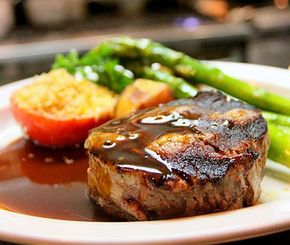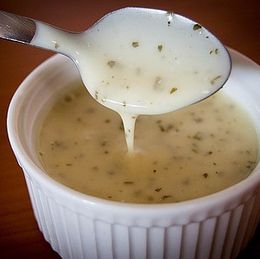
A person on a regular modern diet is exposed to emulsifiers every single day. Sauces. Dressings. Baked goods. Ice cream. Chocolate. Processed meat. In fact, so many people are subject to the side effects of emulsifiers without ever realising it. In this part of the series of Allergies to Food Additives, we take a closer look at emulsifiers and thickeners in food, to see what kind of damage they do to our health.
What are emulsifiers and thickeners in food
Emulsifiers
Emulsifiers form a homogeneous mixture of otherwise two or more substances that would never mix when left alone. An example is water and oil. Even if we stir it into a somewhat uniform mixture, when left to stand after a while, they become two obviously immiscible layers.
Emulsifiers maintain consistency in texture, and prevent separation of ingredients. We are so used to consuming texturally perfect foods. Without emulsifiers, we would never enjoy many processed foods, like peanut butter, chocolate, ice cream, margarine, spreads and dips, sauces and dressings, processed meat, and baked stuff including bread and cake! Can you even imagine life without these foods?
The most common types of emulsifiers used as food additives are:
- soy lecithin
- egg lecithin
- polysorbates
- cellulose gum (carboxymethylcellulose)
- carrageenan
- guar gum
- xanthan gum
- locust bean gum
Thickeners
Food thickeners as additives serve to increase the viscosity of foods like soups, milk (commonly dairy free ones), sauces, jams, and some desserts like puddings. They enhance the texture without altering the taste of the foods. Without thickeners, foods would be oddly runny.
Some thickeners form a gel with the liquid to create a weakly cohesive structure. Others simply get in between the liquid molecules to make it more semi-solid, rather than with a totally runny consistency.
Examples of common food thickeners:
- corn starch
- potato starch
- tapioca starch
- agar
- carrageenan
- guar gum
- xanthan gum
- locust bean gum
- collagen
- egg whites
- gelatin
- pectin
You would realise there are a number of common items on the emulsifiers list and thickeners list, this is because many of these substances have more than one function. When they form a homogeneous mixture of two liquids, at the same time they also thicken and stabilise the food, as the ingredients are bound together.
Side effects of emulsifiers and thickeners
Some of the additives listed above are harmless, they are actually quite naturally-occurring foods. Here I would focus on the more problematic side effects of emulsifiers and thickeners, that have potential of giving rise to health issues when consumed regularly.
Soy Lecithin
Soy lecithin is a fatty compound extracted from soybean oil. One of the main negatives would be the use of genetically modified soybeans, which brings with it the entire burden of issues associated with GMOs (genetically modified organisms).
The other problem would be the use of hexane in the extraction process, which is supposed to be removed in other processes further down the line. Unfortunately, nobody is governing or checking any remnant hexane in the final product. Hexane can damage our nervous system. Read more about it on msdsonline.com.
Polysorbates and Cellulose Gum
These two emulsifiers are grouped together because there had been a study on them, added to the food and water of lab mice. The beneficial bacteria in the gut of the mice were found to have reduced, and their intestinal barrier were weakened, potentially allowing pathogens and other undesirable substances to pass through and enter their bloodstream. The mice also developed mild inflammation, and symptoms of metabolic syndrome.
Carrageenan
Carrageenan is extracted from seaweed just to serve as a thickener and emulsifier, with no nutritional value. It causes inflammation, ulcerations and even cancers of the gastrointestinal tract in lab mice. Read about the research that uncovered these effects. In the past, drug investigators even used carrageenan to cause inflammation in tissues, in order to test the anti-inflammatory properties of new drugs. It shows how pronounced the inflammatory effects of carrageenan are.

The Other Gums
Guar gum is made from guar beans, and is usually milled down into powder form. It is full of fiber and low in calories. Guar gum absorbs a whole lot of liquid in the digestive system, expands and curbs appetite, so some weight loss companies use it in their meal replacement products. But in people with a sensitive digestive system, like many eczema warriors, it can create problems, and even worsen any leaky gut condition. Allergic responses to guar gum include itching, asthma, diarrhea, and difficulty breathing. More information about guar gum can be found on draxe.com.
Xanthan gum is derived from a sticky layer of coating that forms around a specific kind of bacteria, as it ferments the sugars from corn, soy or wheat. Xanthan gum upsets the stomachs of some people, causing gas, bloating and diarrhea. Apart from this minor irritation to more sensitive people, xanthan gum is actually quite harmless as a food additive. Read more about it on bobsredmill.com.
Locust bean gum is made from the seeds of the carob tree. It can trigger allergic reactions in some people, just like guar gum. And if you already have digestive issues, do try to avoid this, as it tends to slow down the movement of food through the stomach to small intestines. You can read up more about locust bean gum on sciencedirect.com.
Go the natural way
So we have seen that the common issue with emulsifiers is their tendency to trigger an allergic response in sensitive people, and also worsen an already weakened gut, which is a very common root cause of eczema and chronic inflammation.
If you really have to use emulsifiers or thickeners, go as natural as possible.
One obvious candidate as a natural emulsifier is egg yolk, the whole, natural, unprocessed form, not the extract. It is great as a natural emulsifier because many proteins found in egg yolk have some amino acids that bind well with water, while other amino acids repel water and prefer oil. So a part of the protein sticks to water, while the other part to oil.
That is the important role that egg yolk plays in making mayonnaise. Unfortunately, as it is animal-based, it would not be aligned with the vegan diet, or any other plant-based diets. The other main limitation of using egg yolk as an emulsifier has to do with its heat stability, that is why its application is mainly in baked goods.
There is research underway to study many more natural emulsifiers, like biosurfactants, phospholipids, biopolymers, and colloidal particles. Until their efficacy can be determined, maybe it is better for our health to just stick to natural, unprocessed foods.
Allergies to food additives: is it worth it?
Generally, food additives serve to preserve foods to prolong their shelf lives, enhance the taste so it appeals to your taste buds, give it a vibrant and interesting colour, and of course thicken food and keep it in emulsion state. But the allergies to food additives triggered in many people with eczema, makes me question whether or not it is worth it.
If we think about it, it becomes quite clear that food additives are not a necessity, but food manufacturers’ efforts to create the perfect food, great in taste, texture and appearance, and can last a long time on the shelf. This gives the consumer the perfect experience, so that they go back for more. At the end of the day, it’s all about profit.
For you and me, our primary concern is health. Our own health, and our family’s health.
We are what we eat. The additives in each and every package of food is definitely in too small a dose to have any drastic effects on us. But for a person who eats mostly processed foods throughout the day, it can amount to quite a significant bit. Ham, bread, jam, salad dressing, the muffin or cake for snack, the potato chips at night, and of course that ice cream. ALL these are processed foods, with additives included.
It is no wonder that so many people have developed sensitivities and allergies, creating a perpetual state of low level inflammation that stresses out the body systems, leading to chronic diseases. Because food additives are not part of our natural diet, they are man made to serve their various purposes.
Final thoughts
The choices you make today will affect your health and quality of life years down the road. We have discussed the side effects of emulsifiers and thickeners in this article, you can also read more about allergies to food additives like preservatives, food flavourings, and food colourings in the related articles below. It is a huge lifestyle change to move away from processed foods, but it is how we are meant to eat – natural, wholesome, unprocessed. And it is how our health will thrive.

This article is super helpful. As someone with a ton of digestive issues, it’s important to know what to lookout for. I’m gluten free (in an attempt to lessen the digestive issues), so I see a lot of xantham gum in the foods I eat. I try my best to eat as naturally as possible, but it can be difficult.
Now I know that I really need to stay away from a few of the things you’ve listed. Thanks for the help!
Hi Taylor,
Yes, it is definitely very hard to avoid emulsifiers in our food. Not just in processed foods, they are in gravies, sauces, and soups as well. So the moment we eat out, there, we will have to deal with it. That’s why now we make our meals from scratch at home. Not easy but we just have to do our best.
All the best to your health.
Hello Joo,
Interesting article, as you were describing the characteristics of the emulsifiers and general thickening ingredients in many processed foods, kinda made me think that I wanted to drink some water to dilute that stuff! Very good job describing it…
It is alarming the amount of health problems that come directly from our food, for me it the past three years have been a real eye openers to this fact. Have not had to deal with food allergies, diabetes has me busy enough.
My diet is pretty straight forward now, not eating any fast food or restaruant food just due to the high carbs/sugar content. Thanks for the information I will look at soups differently now and try to get used to the idea of watery is good!
Have a great day!
Chad
Hi Chad,
It’s great that you’re taking a proactive approach to your diet, in managing your diabetes. Is it Type 2? Diet does play such a crucial role in our health, you’re fantastic in avoiding fast food and restaurants! They run a business, they won’t look after our health. Only your kitchen at home will look after your health. Godspeed.
Very good article. It is so true we need to eat more natural unprocessed food. It is very unhealthy to eat processed food. It is scary how many people are affected by allergies and it can be in so many products. We need to cook for ourselves more and eat more simple and basic the way we are meant too. Keep up the good work
Hi Ruth,
Thank you for your encouragement, I really appreciate it. And you’re so right that we need to cook for ourselves. So many in the food industry add nasty stuff into the food just to make us keep going back, keep buying, at the expense of our health.
Being someone who had eczema as a child I remember having serious breakouts during the spring time and waking up with my eyes glued shut and rashes on the back of my knees and bends of my elbow.
I have seem to have grown out of the breakouts as my skin has cleared up after puberty. I always read my labels and stay away from those foods with more than 5 ingredients. Especially when the ingredients are emulsifiers of the soy base.
DO you believe that refraining from these ingredients will help the inflammation of an eczema breakout? If so, How long should one stay away from them to see results?
Thanks for sharing,
Shannon
Hi Shannon,
Oooh, I cringed reading about your eyes glued shut. Yes spring time are the worst for allergies. I’m so happy for you that you have outgrown your eczema! But you’re right to stay away from processed foods too, 5 ingredients is a fantastic rule of thumb! I love that!
Yes, refraining from problematic ingredients will definitely reduce the inflammation. Generally, I would say two weeks should be more than enough to start seeing results, when we stay away from food additives.
A timely read for me, and you’ve highlighted an area of food additives I hadn’t even thought of yet! I think you said it near the end — it’s just best to avoid these additives altogether and enjoy natural, whole, plant based foods. I love the advice to just shop the outer edge of the supermarket — the produce section, and the meat and dairy sections if you must, and the frozen veges and fruit. I’ve been trying to avoid processed foods for a while now, but I find it hard with a toddler. It should be easier — to make healthy choices for her, but the Convenience gets me every time. At least, there are many more natural products around for babies and children now.
This is no excuse though, and you’ve reminded me to become more aware again. Time for some healthy home baked goods, I think!
Thanks for the article – Erica
Hi Erica,
It’s great that this article is helpful to you, and thank you for your candid discussion. I can totally understand what you mean when you say convenience gets you every time. It’s like that for me too, but I believe we’d all do our best for the young ones. Stay healthy, and enjoy your little girl.
…And we wonder why there is so much disease in the West.
This is a great post. My wife and I have used herbs and homeopathic remedies and essential oils for most of our lives, so the breakdown of these various emulsifiers is a excellent read.
Most people never give thought to what an “emulsifier” is let alone the effect it can have on your body. Most people are completely unaware of the fact that the human body has a difficult time processing all of this garbage.
You also mention inflammation in your post. Inflammation is a major cause of chronic disease in the United States. Treat and eliminate the inflammation, you cure the disease.
Great post!
Howard
Hi Howard,
It’s always great to know people who have already adopted the natural and healthy lifestyle, it’s great that you and your wife are using herbs, homeopathy, and essential oils. I believe strongly in their healing values too.
Yes, you’re so right that inflammation is the root of many chronic diseases. What ever our body is not happy with, inflammation sets in to fight the foreign substances, and it’s definitely a sign for us to look for the issues that are making us sick.
Wow, I am blown away by the stuff they put into our food. I guess we kind of all know about it, but until you actually get sick from it or you learn about it, it is easier to stay ignorant. I wasn’t even sure what emulsifiers do and thanks to your article I am a bit smarter today. I only recently adopted a vegetarian diet and my partner and I are moving more and more to the vegan diet. Also when I go shopping now and it has more than 5 ingredients I usually put it back in the shelf. Luckily I have never suffered from eczema but my sister has and it is painful just to watch her scratch herself to bleed. I did notice that my gut feeling in general has become more relaxed since I adopted the new diet. I will just stick to it and keep eating more plants. Oh and homemade kombucha. That is a great way to help with your gut flora.
Hi Hendrik,
Thanks for the tip on homemade kombucha, I really must get around to making it one of these days. I’ve been putting it off because I read stories of people’s glass bottles exploding. I must stop being so paranoid and get a life with kombucha!
I love your 5 ingredients rule of thumb, that’s a great way to live and eat! Thumbs up for that!
Yeah I definitely know the pain of seeing someone you love scratch themselves to bits. Two of my children are like that. I hope your sister finds some relief soon.
Thanks for this. I’ve been following a paleo diet for the past year but have only just realised the hidden dangers of emulsifiers. I’ve now had to start making my own almond milk, buying special coconut milk, etc. They are everywhere! So sad the food companies cant produce items which are in our best interest. I cant wait until all this science about microbiomes becomes more widely known.